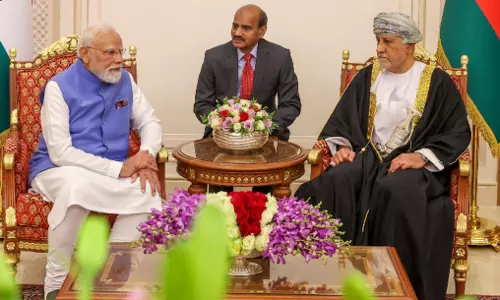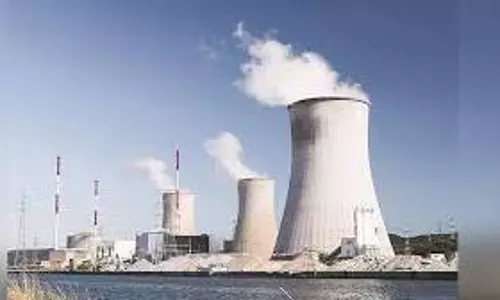
India's approved semiconductor projects to produce 24 billion chips annually: government official
text_fieldsIndia’s push to establish itself as a global semiconductor hub is gaining momentum, with government-approved projects expected to produce over 24 billion chips per year, a senior official from the Ministry of Electronics and IT announced on Thursday.
Speaking at an event hosted by the Germany-based research organisation Fraunhofer-Gesellschaft, Amitesh Sinha, Additional Secretary at the IT Ministry and CEO of the India Semiconductor Mission, outlined the scope and ambition of India’s semiconductor initiative.
“Tata Fab is going to produce 50,000 wafers per month. The other 5 packaging units are going to produce 24 billion chips per annum. There are many more proposals under appraisal. So in the near future, you will see a lot of approvals coming up,” Sinha said.
The government has launched a ₹76,000-crore scheme to bolster the semiconductor ecosystem in the country.
So far, six projects have been approved under this initiative, including a wafer fabrication facility by Tata Electronics and five semiconductor packaging units.
A significant portion of the allocated funds has already been committed to these projects.
Emphasising the long-term nature of the initiative, Sinha stated, “We are here for a long-term journey. Semiconductor has not been a business for a few years. We assure all of you that the policies will be continued and support for development of the entire ecosystem will be provided.”
He also urged German semiconductor companies to support India’s fabrication efforts and highlighted opportunities for collaboration in high-tech research areas, including material science and 2D materials.
“A lot of rare earth materials and permanent magnet recycling, all those are the areas where you can see synergy with Fraunhofer. Coming back to semiconductors, we are seeing that India has approved some proposals and is going to approve many others,” Sinha said.
He further noted that the development of the supply chain ecosystem is a key focus area, especially in terms of high-purity chemical gases and materials, and pointed to India’s research in advanced technologies such as 2D materials and graphene.
“Now we are also going to develop the supply chain ecosystem in India. In the supply chain, a lot of technologies will be required for the high-grade purity of chemical gases and materials. Fraunhofer's research is very strong in materials. In 2D materials or graphene, there is a lot of scope, and a few of our R&D organisations are doing research in 2D and graphene technologies also. So there also I see scope,” he said.
2D materials, considered the next frontier in semiconductor innovation, have the potential to enable chips that are more than ten times smaller than current silicon-based counterparts.
Reaffirming India’s role in global tech supply chains, Sinha concluded, “The honourable prime minister of India has already announced that we would like to be a trusted player in the global supply chain. Whatever industry we are setting here, whether it is semiconductor, artificial intelligence, or quantum computing, it is for the better use of the entire world.”

















